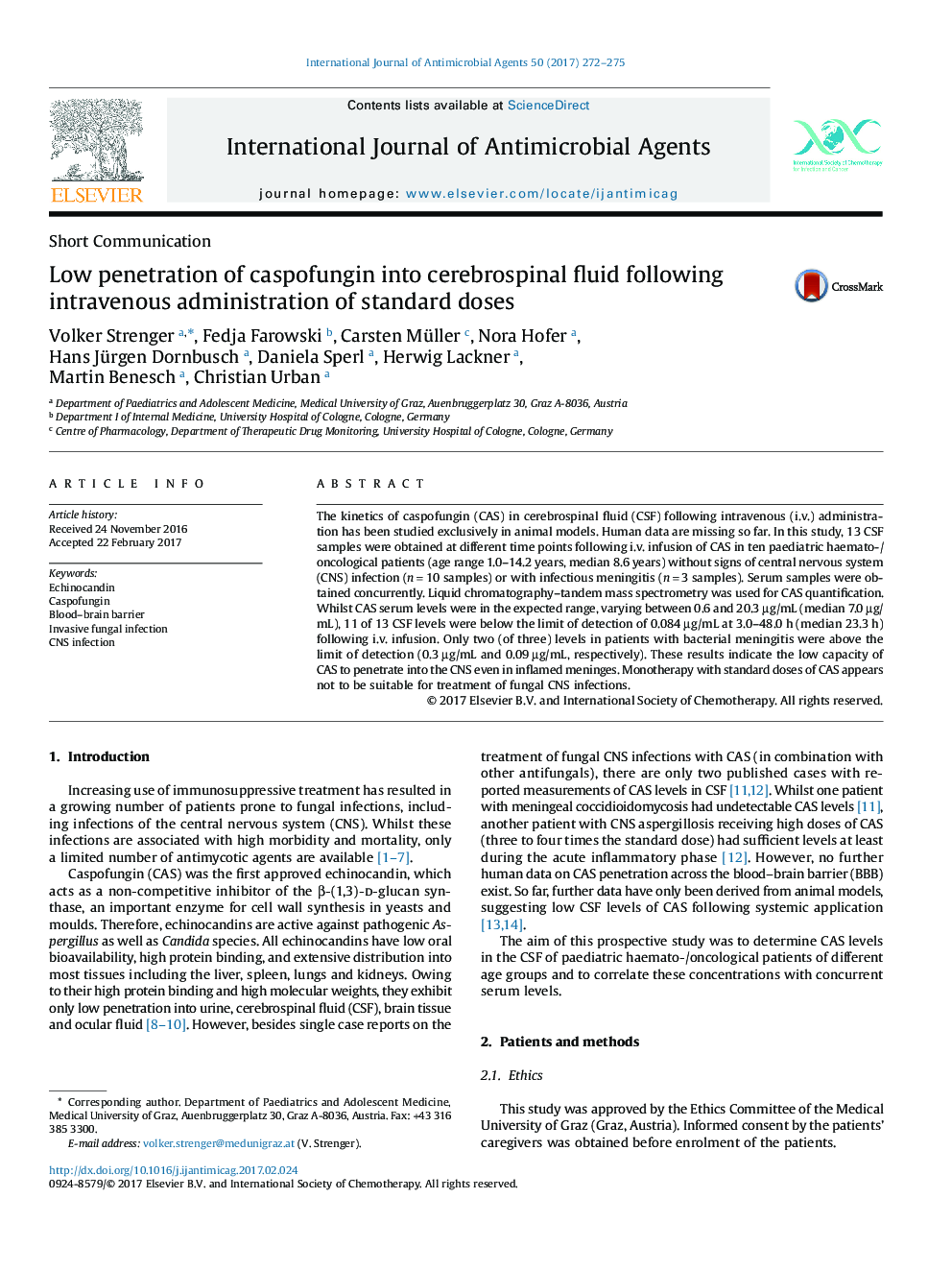| Article ID | Journal | Published Year | Pages | File Type |
|---|---|---|---|---|
| 5666956 | International Journal of Antimicrobial Agents | 2017 | 4 Pages |
â¢Caspofungin (CAS) shows low capacity to penetrate into the human central nervous system (CNS).â¢In inflamed meninges, penetration of CAS may be increased in some patients.â¢Standard doses of CAS are not sufficient to treat fungal CNS infections.
The kinetics of caspofungin (CAS) in cerebrospinal fluid (CSF) following intravenous (i.v.) administration has been studied exclusively in animal models. Human data are missing so far. In this study, 13 CSF samples were obtained at different time points following i.v. infusion of CAS in ten paediatric haemato-/oncological patients (age range 1.0-14.2 years, median 8.6 years) without signs of central nervous system (CNS) infection (nâ=â10 samples) or with infectious meningitis (nâ=â3 samples). Serum samples were obtained concurrently. Liquid chromatography-tandem mass spectrometry was used for CAS quantification. Whilst CAS serum levels were in the expected range, varying between 0.6 and 20.3âµg/mL (median 7.0âµg/mL), 11 of 13 CSF levels were below the limit of detection of 0.084âµg/mL at 3.0-48.0âh (median 23.3âh) following i.v. infusion. Only two (of three) levels in patients with bacterial meningitis were above the limit of detection (0.3âµg/mL and 0.09âµg/mL, respectively). These results indicate the low capacity of CAS to penetrate into the CNS even in inflamed meninges. Monotherapy with standard doses of CAS appears not to be suitable for treatment of fungal CNS infections.
